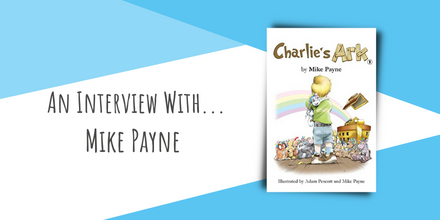Matt Lynn, British thriller writer and financial journalist, was born in 1962. Throughout the 90’s Matt worked for The Sunday Times. He is now writes a column for the Wall Street Journal and is a regular contributor to The Spectator.
In terms of his novels, Matt is most well-known as being the author of the Death Force series, which started with Death Force in 2009, then continued with Fire Force (2010), Shadow Force (2011) and continues with Ice Force which is due out 29th March 2012. Matt is also the author of Insecurity (1997), and The Watchmen (1998). As well as writing fictional books, Matt has written two business books, The Billion-Dollar Battle: Merck v. Glaxo and Birds of Prey: Boeing v. Airbus.
Hi Matt,
Many thanks for agreeing to an interview with us today, we love the Death Force series here at World of Books; they never fail to have us on the edge of our seats!
Q: So, we’ll start with an easy one, when you were younger, what career did you imagine yourself having?
A footballer, like most small boys. I never particularly saw myself as a writer. It was only after leaving university and working as a journalist that I started thinking about writing novels, and even then it took me a few goes before I got it right.
Q: In the past you have ghost-written dozens of military thrillers. What made you step back and begin writing under your own name?
Well, that’s easy – the money and the fame! Ghost writing was a great experience because it gives you a lot of experience, and allows you to try out different ideas and styles. And you get well-paid. But after a while it gets frustrating seeing someone else get the credit for what is after all your work.
Q: As we’ve already mentioned above, your new book, Ice Force, is due out 29th March. The book continues the story of a group of mercenaries that were first introduced in ‘Death Force’. In ‘Death Force’ we read about their fights and trials in Helmand, Afghanistan, in ‘Fire Force’ the team is thrown into the unforgiving hands of Africa, and in ‘Shadow Force’ they fight pirates in Somalia. In this most recent instalment the team are forced into “a deadly battle for survival in the frozen wastelands of the Arctic”, where they are tasked with locating a murdered millionaire’s blackbox in the ruins of his targeted plane. This newest book sounds just as exciting as the previous three Matt, for those avid fans of yours out there, what can they expect? And are there any surprises in store?
It is a different kind of story, mainly because the Arctic is such an extreme environment. It is as much a survival story as anything else. They are battling the elements, and trying to stay alive. Also, the plot is slightly different. It is much more of a mystery. The unit has to find a plane that came down near the North Pole – but then find out why it came down.
Q: As we mentioned in the previous question, location is obviously an important factor when writing each new
book – Afghanistan is brutal and “the most fascinating combat theatre in the world today”, as we so often hear on the news Africa is full of corrupt regimes and natural resources making it a melting pot for “the dogs of war”, and Somalia remains “a gruesome and failed country”, where the poverty of the people makes piracy a way of life. In ‘Ice Force’ the team touch down in the Arctic. This novel contrasts to the ones before because it sets the mercenaries in a place where there is not already an ongoing battle, and there has not already been wars waged. Why did you choose to do this?
I’ve always enjoyed Arctic thrillers. It is a fascinating place to set a story – it is the closest thing you can do to taking your characters to a different planet without straying into sci-fi. Also, it is really contemporary. There is a huge geo-political battle going on for the oil under the Arctic, and that seemed a good subject for a thriller.
Q: When talking about researching for your books you said you “spent a lot of time interviewing soldiers who had fought in the PMCs”. What real-life stories have inspired you or stayed with you?
Lots of them. By talking to soldiers and mercenaries you collect lots of information. I think what you learn most from the mercenaries is how exposed they are. They are put in very dangerous situations. But they don’t have any of the back-up of regular soldiers.
Q: We know that you have been inspired in your writing by Sven Hassel, who wrote a series of books based on his time in the German Army on the Eastern Front. Obviously military history is a source of great interest to you Matt, why is this? And have you always held this fascination?
War is great drama – it is full of human interest, and conflicts and stories. It is the perfect arena to set stories in. And although the technology changes slightly, the basics of warfare don’t change very much, so historical books are a great source even when you are writing more modern stuff.
Q: You’ve written a few e-books, including ‘BlackOps’ and ‘Lethal Force’ (check out Matt’s Site for more details). It’s got to be asked Matt! Kindle or real books?
That’s a loaded question! E-books are real books. A book, after all, is a collection of words and ideas, not a particular physical object. I love printed books of course, but right now I mostly read on my Kindle. And e-books are opening up all kinds of new possibilities for writers. So in general I think e-books are a great thing for writers.
Q: In the appendix of each of your novels there is a detailed list of all the weapons used throughout the book. How long does it take to research all these?
It is part of the research process of the whole book. I like to include lots of kit, and I need to have a rough idea of how it works to create the story. I try to include some old weapons and some brand new ones. And the appendix is there for readers who want to know a bit more about each weapon.
Q: Of your work people have been known to say statements such as “you can taste the dust and smell the blood” (and World of Books heartily agrees!) If this is the case for a reader of your stories, how real do they become in your mind whilst writing them? And how easy are they to shake off?
The stories are very real. I transport myself to the place in my mind. That is the only way to make it realistic. And of course you find yourself becoming very bound up in the book you are writing – though actually, it is the characters that are harder to shake off than the place.
Q: And the final one we ask everyone! World of Books is dedicated to providing good-quality second-hand books to the public. In a world with an ever-growing digital media base, and increasing environmental concerns, do you believe in the importance of giving each physical book the chance of a new home?
Sure. As a writer, I think e-books are a preferable form of helping the environment, because of course we get paid for them. So I agree with the objective. But it would be better if the writers got paid something.
Thanks for the interview Matt, you can find a whole range of books by Matt at the World of Books.com website or check out Matt’s website here and don’t forget to follow him on Twitter.




No Comments